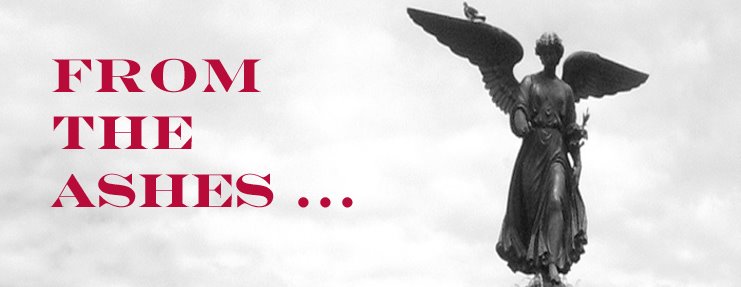Special Report for POZ.com -by Nicole Joseph
Jose F. Colon has spent the last six weeks fighting what he calls an “unbearable crisis” in the Puerto Rican AIDS community. The 54-year-old activist has met with local politicians. He has spoken to newspaper reporters. He even fasted for 33 hours. All from his bed at the Hospital Auxilio Mutuo in downtown San Juan.
“I decided to work from the hospital,” says Colon. As a sick man with both AIDS and diabetes, he says, the grim truth about Puerto Rico’s HIV care emergency has been staring him in the face. “I feel horrified. I feel like it’s 1980.”
You don’t need to check into the hospital to see that financial negligence and mismanagement are pushing Puerto Rico’s AIDS care to the brink. Earlier this month, two AIDS clinics shut down for lack of funds, cutting loose 1,500 HIV positive patients. An estimated 130 people are going without treatment on a waiting list and many more are in need; at least 10,000 Puerto Ricans are believed to be living with HIV.
But now a coalition of furious activists, including several groups from heavily Puerto Rican New York City, are saying enough is enough. They are insisting on federal action—or at least some acknowledgement of responsibility—and wondering whether a crisis of these proportions would be allowed to continue unchecked in any of the states on the U.S. mainland.
Puerto Rico, a U.S. “commonwealth territory” where locals are deeply divided over their relationship with Washington (many call for statehood instead or complete independence), got $58.4 million in HIV care funding last year from the federal Ryan White CARE Act. The average Puerto Rican is less and less likely to see those services, however. The funds’ distribution to local health clinics and Community Based Organizations (CBOs) has gotten painfully slow.
Funds or no funds, many clinics have stayed open anyway—sometimes without working bathrooms, telephones, air conditioning or adequate staff. Some have scraped together cash on their own and invoiced the Puerto Rico Department of Health and the San Juan AIDS Task Force. But with reimbursement now sometimes stretching to as many as nine months, more and more clinics have been forced to go out of business.
“This is something that has been going on for many years, but it has gotten critical in the last three,” says Anselmo Fonseca, co-founder and vice president of Pacientes de SIDA Pro Politica Sana. “Peoples’ lives are in danger, and too many key players either lack competence or…don’t give a damn.”
Last month, Fonseca and other local activists directly invited the feds to intervene. They sent a letter to the government official in charge of Ryan White distribution in Washington, DC: Dr. Deborah Parham Hopson, associate administrator of HIV/AIDS at the Health Resources and Services Administration (HRSA).
The activists recommended that a “third party” step in to dole out the money. The idea would be to put the funds in the hands of a “competent and trustworthy local agency such as the Puerto Rico Certified Public Accountants Chapter, or the office of a federal judgeship.”
In a statement to POZ, HRSA officials said that was one option among several they are considering, and that they are working in conjunction with the San Juan office of Mayor Jorge Santini to “improve the local situation as quickly as possible.”
Members of the New York-based Puerto Rican community who are monitoring the crisis hope that is exactly what’s in store—and have put their weight behind the request for federal help. The Latino Commission on AIDS (LCOA) wrote a second letter to Parham Hopson and also joined representatives of the National Minority AIDS Council and other groups at a February 9th meeting with the Congressional Hispanic Caucus in D.C. Then last week, the Caucus issued a third letter: this one to Michael O. Leavitt, Secretary of the U.S. Department of Health and Human Services, urging “prompt and decisive action to ensure that patients receive the care that Congress intended.”
The question is: How many more letters will be written before somebody steps up to the plate?
The situation is grave, with the CDC reporting that the island’s rate of infection for 2005 was 26.4 per 100,000, nearly twice the rate for the rest of the U.S. (Most Puerto Ricans are infected through injection drug use.)
“Our goal is to get HRSA to take this seriously,” says Dennis de Leon of the LCOA. “Some groups haven’t been paid in the last nine months —that part of the problem [will] be corrected whenever someone decides to correct it.”
This isn’t the first time Puerto Rican leaders have come under fire for mishandling AIDS money. In 1999 and 2000, several former officials of the San Juan AIDS institute were convicted of stealing more than $2 million of federal AIDS funds for personal and political gain. Last December, the FBI, the IRS and the Human Services Office of the Inspector General turned up the heat again by raiding several AIDS program offices in the municipality of San Juan, confiscating thousands of files and copying hard drives.
The San Juan division of the FBI declined to comment on what was found, or whether or not any charges will be filed, but advocates are concerned that the absence of those files might further delay the delivery of federal funds to the island’s increasingly needy CBOs.

No comments:
Post a Comment